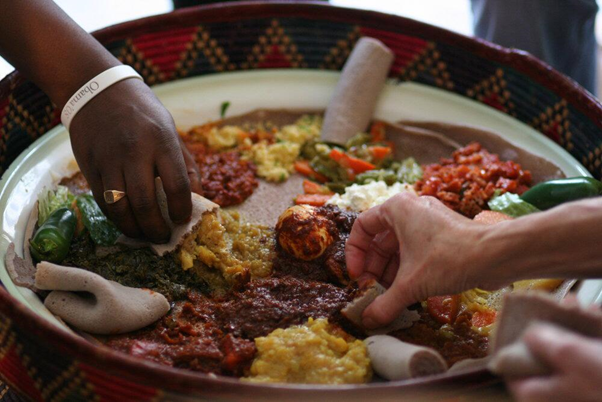
Festivals are special moments of joy, unity, and togetherness. They are vibrant events that bring people together, create memories, and celebrate the many blessings of life. They are also opportunities for communities to strengthen bonds through cultural expressions, music, food, and rituals.
Whether religious or cultural, festivals foster a strong sense of belonging and identity among participants, offering moments of joy, reflection, and togetherness through shared celebration. Mainly, in today’s increasingly busy world, where everybody is entangled in their own personal routines and own matters, festivals serve as meaningful pauses, creating valuable opportunities for people to reconnect with family, strengthen social bonds, and spend quality time with neighbors, relatives, and renew community ties.
Equally important, festival events often allow cherished values, stories and customs to be passed down from one generation to the next, helping to preserve cultural heritage. Each tradition upheld during these celebrations becomes a thread in the rich tapestry of collective identity.
Women have always been the heart and soul of every festival, playing a central role in bringing festival celebrations to life. Their contributions are woven into every detail. From expertly embellishing houses to organizing rituals, preparing aromatic, spice-rich dishes that fill the air and make mouths water, their role in making festivals more tantalizing and unforgettable is beyond words. Their presence and efforts make every festival more vibrant and unforgettable radiating an infectious sense of happiness, joy, well-being, and a smile towards others. The aroma of freshly brewed Ethiopian coffee, which they prepare in an elaborate and symbolic ceremony, adds warmth and depth to the festive atmosphere.
Unexaggeratedly, without their touch, the essence of festivals would be incomplete. Truly, Ethiopian women are not just participants—they are the lifeblood of every festivity, embodying grace and memory. With hands that weave beauty and hearts that echo love and togetherness, women have the power to transform ordinary moments into celebrations of color, scent, and spirit, let alone festivals.
“Women are unquestionably the stars of festivals. It is they who bring life to every celebration through their involvements in each and every activity,” said Emebet Tsegaye, a woman selling traditional attire at her shop in Shiro Meda.
From preparing traditional dishes to decorating homes and organizing family gatherings, women are deeply involved in every facet of celebration. Their hands craft the spirit of the season, whether it is through the scent of spices wafting from the kitchen, the vibrant patterns of woven fabrics, or the warm welcome offered to guests.
According to her, women don’t merely mark the occasion, but also make it worth celebrating with their grace and the joy they bring to those around them.
“Festivals, in particular, provide a perfect platform for showcasing their expertise. Starting weeks before the actual day through purchasing festival items and managing household chores, women demonstrate their flair in creating vibrant atmospheres and creating a lasting impression on all who experience their work,” she said.
While talking about who her customers are, Embet said that she sells traditional costumes crafted from woven cotton. Since her designs are intended for women, [they are dresses and shawls; the majority of her customers are women. However, this does not mean that men never visit her shop. Although it is not always, in some circumstances, men do buy dresses (kemis and netella), for their mothers, wives, children and other family members. They also purchase traditional costume, Gabbis, for themselves and as gifts.
“When it comes to purchasing traditional attire, it is possible to say that Ethiopian women are ambassadors of their cultural heritage. They take great pride in dressing themselves and their families in traditional garments; showcasing the rich cultural heritage of their communities. Not only for major celebrations such as Easter, but also on ordinary days as well, several women prefer to wear intricately embroidered traditional dresses, which make them ambassadors of their country,” Emebet remarked.
The other businesswoman who had a short stay with EPA is Mulu Tamrat. Mulu is a merchant engaged in selling cultural clothing at Shola Market. She offers a wide range of traditional attire designed for mothers, youth, children in different colors and patterns. Her items are suitable for everyday wear, weddings, church ceremonies, anniversaries as well as for other similar purposes.
“Easter is both a festival of food and at the same time a wedding season, so Habesha clothes are in high demand. However, currently the market is not as vibrant as I expected,” she said hoping that the coming few weeks to change the situation.
“Women, by nature, have a good taste and sense for beauty. With just a glance, they can create something enticing. Whether arranging flowers at the doorway or choosing the right color combination for a festive outfit, women infuse every detail with intention and elegance,” said Mekdes Maru, a housewife and a mother of four.
According to her, even though festivals like Easter are much more demanding for women, be it economically or energetically, they are the most cherished ones that
According to her, even though festivals can often be more demanding, both financially and physically, they are the most cherished and eagerly awaited moments for everyone. At the center of this notion, women’s contribution in making festivals perfect and impressive is huge from preparing elaborate meals to cleaning the house and ensuring every detail is perfect.
“Women play a vital and constructive role in making these occasions memorable, handling everything skillfully. Their efforts, however, often unseen and underappreciated,” she added.
Mekdes believes that holidays carry deep meaning because they bring families together, keep traditions alive, and create lasting memories. The joy and connection experienced during festive times often outweigh the stress and hard work. Especially, Easter is more than just a celebration. Rather, it is a reflection of love, strength, forgiveness and togetherness; she added referring to the traditions and activities that follow the festival.
BY ELIZABETH MENGISTU
THE ETHIOPIAN HERALD THURSDAY 17 APRIL 2025





